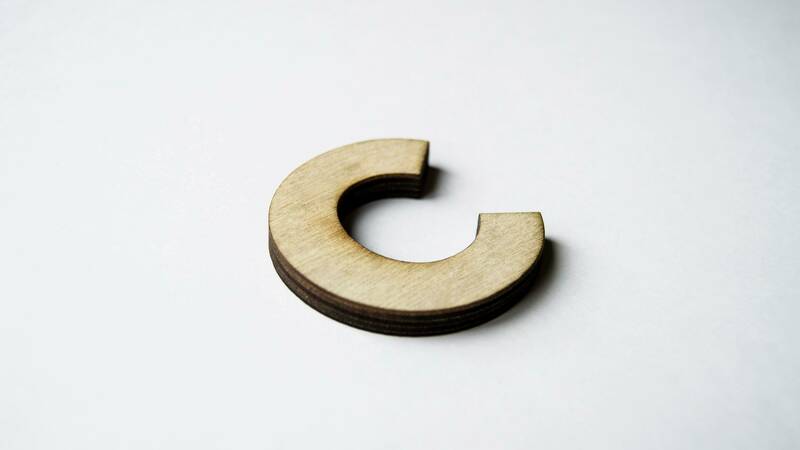Despite the fact that it’s barely 5:00 p.m., I’m surrounded by complete darkness. The only source of illumination outside my car is coming from the lights in the Target parking lot and my own phone. If I look out the driver’s side window, I can even see the fluorescent red bulls-eye that’s plastered to the side of the building. The spoils of my Target escapade sit in the back while I bring up the contact information for my mom. My chest is tight and my eyes are still watery from unshed tears. Grades for my first fall semester at Notre Dame had just come out, and I was in the process of calling her to tell her the horrifying news: I had gotten a C in my Intro to Psychology class. I had never gotten below a B on a school transcript before, and after some Googling and using my iPhone calculator, I realized it would bring my grade point average down to 3.25. It felt like a punch to the gut. Suddenly, all the work I had done and all the accomplishments I had built up throughout high school were crumbling down.
The dial tone rang once, twice; then my mom picked up. I can’t remember exactly how our conversation went, but I do remember that the first thing I told her was that I had gotten a C in my Intro to Psychology class, and her response was to congratulate me. I was stunned. In no world did I think a C was worthy of congratulations. I expected rage and disappointment from my mother, not kindness. I even voiced this out to her, asking why she was happy over such a subpar grade. She stated that, regardless of grades, she knew that I was always trying my best and that the true importance of college came from the experience of learning.
“Besides,” she said, “a C means you passed.”
All throughout high school, I had this notion that grades were something public, that a transcript was a medal or trophy to flaunt to others in a show of superiority. The concept of learning being an individual journey had been lost a long time ago and was instead replaced with a perfectionist, 24/7 academic grind culture. After all, high schoolers had little to talk about outside of exam scores and midterm grades. Even before high school, I was constantly praised for showing interest in reading and was often told that my perceived intelligence was a gift. In my head, I became this self-assigned “gifted child” whose only value came from my level of academic achievement. My friends often asked me how I maintained my high grade point average. My response was usually that it was because my mother wanted me to get good grades, to which they often complained, lamenting over how they wished it was truly that easy. Looking back, I think my grades were less a result of my family’s expectations and more a reflection of what I thought my own self-worth was based on. I got good grades because it was my only purpose in life. I thought it would be easy because it gave me concrete goals to work towards. However, a race is impossible to complete if the finish line keeps moving.
My town has a reputation for its level of academic rigor, and when the community is composed of mostly upper-middle class, Ivy-League educated families, the race to the top is a steep one. At some point in every Lexingtonian teen’s life, excelling becomes the norm and “standard” becomes mediocrity. There are always harder classes to be taken, more clubs to participate in, longer resumes to write. In high school, the level of expectation is an elevator that only goes up. It’s an impossible standard to meet, one that I had unknowingly set for myself before anyone else could do it for me. When I later told my friend about my conversation with my mom, our breaths mingling in the winter air as we drank our rapidly cooling milk tea, she responded that I had essentially dug my own academic grave. I wondered then if my overly-emotional response to that one poor grade was me being forced to lie in my own grave of unattainable achievement. Or if that I was still in the process of digging that grave, going deeper and deeper, until, like an upside-down, Icarus I melted from the heat of Earth’s molten core.
My mother’s own words of affirmation were in a way, a silver-lined rope, one that I might use to pull myself out of that self-imposed grave that I had started digging from the moment I realized people saw me as a smart child before they saw me as a child. My mom saw me as her child, an individual that was hardworking, independent, and had big goals in life, but still her child nonetheless. I wasn’t a perfect GPA-machine; I wasn’t born pre-programmed to get all As the moment I entered high school. Of course she wanted me to succeed, as does every parent. However, I think the most important thing that came out of my conversation with my mom was the idea that my college experience was my own. Even now, I still struggle with the concept. There are times where I feel obligated to share my grades with others, because I still have this notion in my head that my education is a group effort. My grades aren’t just a reflection of myself; they’re a reflection of my parents who raised me, my aunts and uncles, who encouraged me to come to Notre Dame, and my friends who made me laugh and filled my otherwise gloomy high school experience with fond memories. But my friends did not follow me to Notre Dame. They’re scattered across the country, learning new things and pursuing their own goals. Perhaps they too have their own self-dug graves, forced to reckon with their past as they realize college is not all they made it out to be.
Spring semester has offered me time to reflect back on both my first year at college and my first year at college in a pandemic. It was just a year ago, before I had gotten my grades for fall semester, before I had even stepped onto Notre Dame’s campus, that I came down with the coronavirus. That time my face was damp not because of tears but because of sweat. For fourteen agonizing days, I stayed in my room suffering from fever, aches, and exhaustion, the only companion for me at that time being the view from my bedside window. I learned more in those fourteen days than I ever did in Intro to Psych class. I learned that eating buffalo chicken wings after getting diagnosed with a deadly virus is not the brightest idea, but still tastes great regardless. I learned that changing your sheets after lying in your own sweat for days on end can be euphoric. I learned that coffee hits different when you haven’t had any caffeine for two weeks. (I mean, I also learned that in Intro to Psych, but that’s beside the point.) Most importantly, I learned that loneliness is the greatest teacher of all. It was alone I struggled through Covid, and it was alone I called my mom from the Target parking lot. Learning is an individual journey, so don’t be afraid of being alone.
Discussion Questions
1. Lavins’s essay prompts readers to think about the relationships between learning, grades, and self-worth. Up to this point in your life, how have you thought about or experienced the relationship between these three things? Is there anything you might want to revise or rethink?
2. The author reflects on how her view of her education changed over the course of her first year of college. She writes that one of the most important shifts in her perspective was “the idea that my college experience was my own.” What do you think the author meant by this? What does it mean to you to take ownership of your education?

